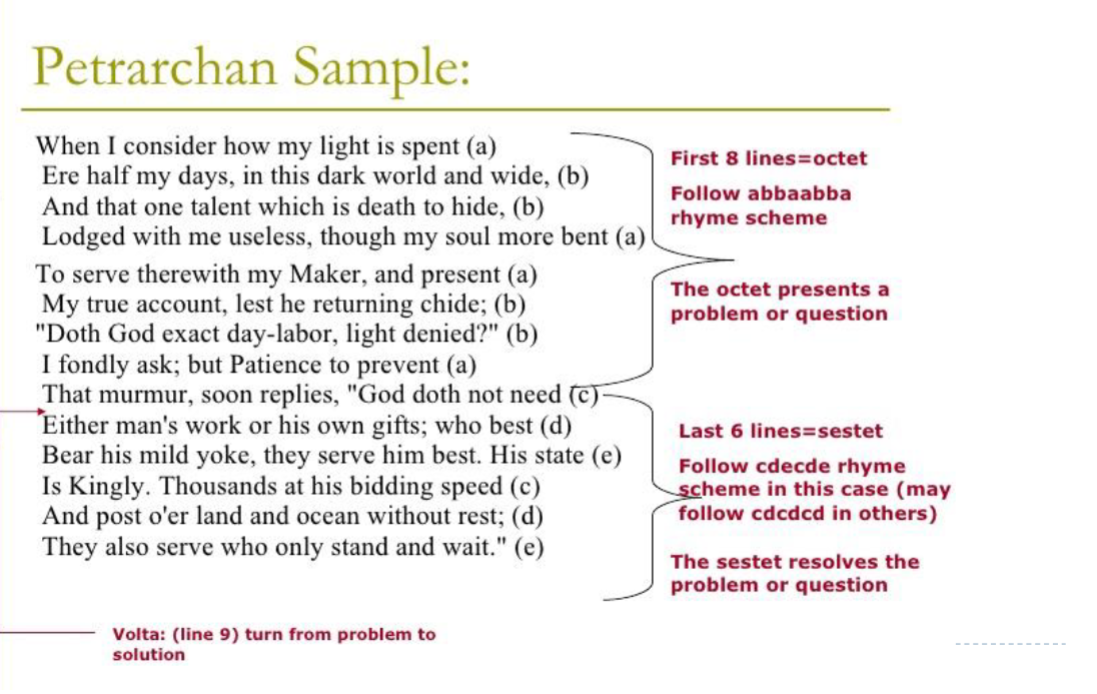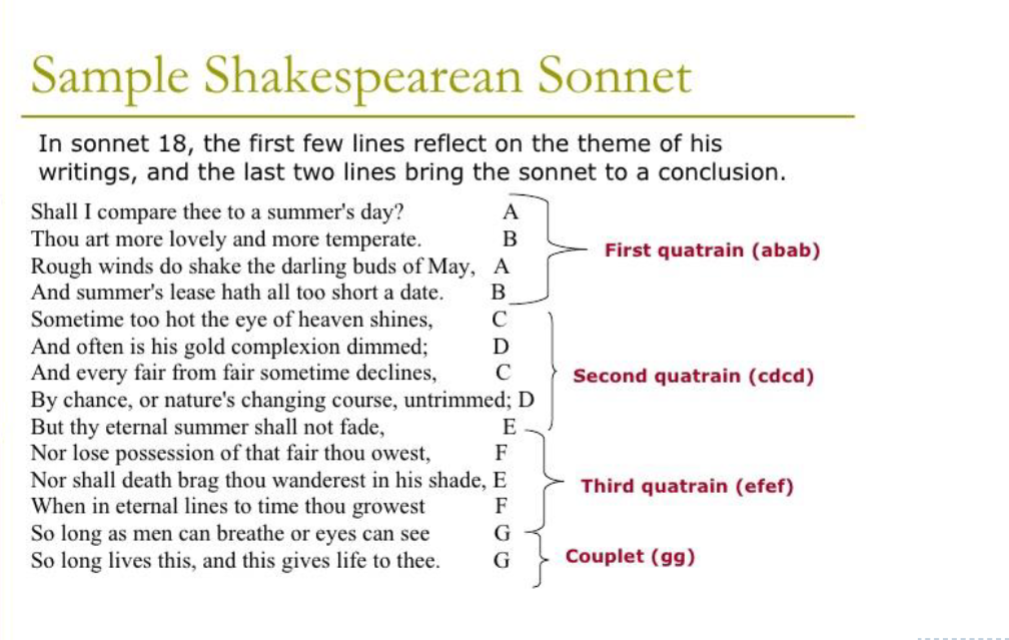English Verse Unit Vocabulary
1/32
There's no tags or description
Looks like no tags are added yet.
Name | Mastery | Learn | Test | Matching | Spaced | Call with Kai |
|---|
No analytics yet
Send a link to your students to track their progress
33 Terms
Prose
written or spoken language in its ordinary form, without metrical structure
Verse
writing arranged with a metrical rhythm, typically having a rhyme
Alliteration
the use of words that begin with the same sound near one another
Elegiac
(especially of a work of art) having a mournful or sad quality
Britons
Early inhabitants of Britain and England. Did not speak Old English or have a written language
Anglo-Saxons
Raiders who came over to England from Germany and Denmark around 500 CE. Brought their language Old English to England
Normans
French who came and took over England in 1066 CE
The Great Chain of Being
Medieval worldview and religious view of the hierarchy people, beings, and entities of existence
Feudal System
The medieval hierarchy within a country and how everyone at a lower status must pay money or give military service/allegiance to the person above them
Chivalry
The qualities expected of an ideal knight, especially courage, honor, courtesy, justice, and a readiness to help women and people who may be more vulnerable
Ballad
A poem or song narrating a story in short stanzas. Traditional ballads are typically of unknown authorship, having been passed on orally from one generation to the next as part of the folk culture. Sir Patrick Spens is an example of a ballad.
Rhyme Scheme
the ending sounds of lines within a poem. Originally used in poetry from the Romance languages - Middle English started to use rhymes during the medieval period
Iambic Pentameter
Having 10 syllables with a line of poetry. The rhythm of each two syllables is unstressed/stressed
Heroic Couplet
A couplet written in iambic pentameter
Thomas Becket
The Archbishop of Canterbury who was murdered by supporters of the King of England. The cathedral he was murdered in became a holy place to visit - it is the place the travelers are visiting in Canterbury Tales
Renaissance
The term means “rebirth” since it looks back to the art and scholarship that was seen in ancient Greece and Rome (450 BCE - 450 CE). A time when new artistic expression flourished and new intellectual conversations began to dominate Europe from about 1495 to 1630. More emphasis is placed on the individual than in the medieval period
Soliloquy
When an actor speaks in his inner thoughts to the audience. This is not dialogue since the actor is speaking to his or her own self
Monologue
A longer speech that a character gives to others on stage - not necessarily his or her inner thoughts, but something he or she wants other characters to hear
“Et tu, Brute?”
You too Brutus?
Irony
A mode of expression in which the intended meaning is opposite of what is stated, often implying ridicule or light sarcasm; a state of affairs or events that is the reverse of what might have been expected
Italian/Petrarchan Sonnet
A 14-line poem typically structured with an octave followed by a sestet, often following the rhyme scheme ABBAABBA for the octave.

English/Shakespearean Sonnet
A 14-line poem typically composed of three quatrains followed by a couplet, often following the rhyme scheme ABABCDCDEFEFGG.

Volta
Turn/shift in focus in a sonnet usually after line 8
Sublime
of such excellence, grandeur, power, or beauty
as to inspire great admiration or awe.
Nostalgia
a sentimental longing/yearning or wistful
affection for the past
Idealism
thought based on imagination or ideals, no
matter how unrealistic
Figurative Language
Language that is not literal:
Similes, metaphors, personification, hyperbole
The Romantic Age
A period of artistic expression (1790s-1830s) that was a reaction to the “Age of Reason”
Apostrophe
A figure of speech in which someone absent or dead or something nonhuman is addressed as if it were alive and present and could reply
Ode
An exaltation, praising, or deep mediation on an object or topic
Modernism
An experimental artistic movement of the first half of the 20th century that was seen as a rebellion against the previously more traditional artistic forms
Free Verse
No meter or rhyme in the poem - just words
Couplet
Two consecutive lines of poetry that rhyme